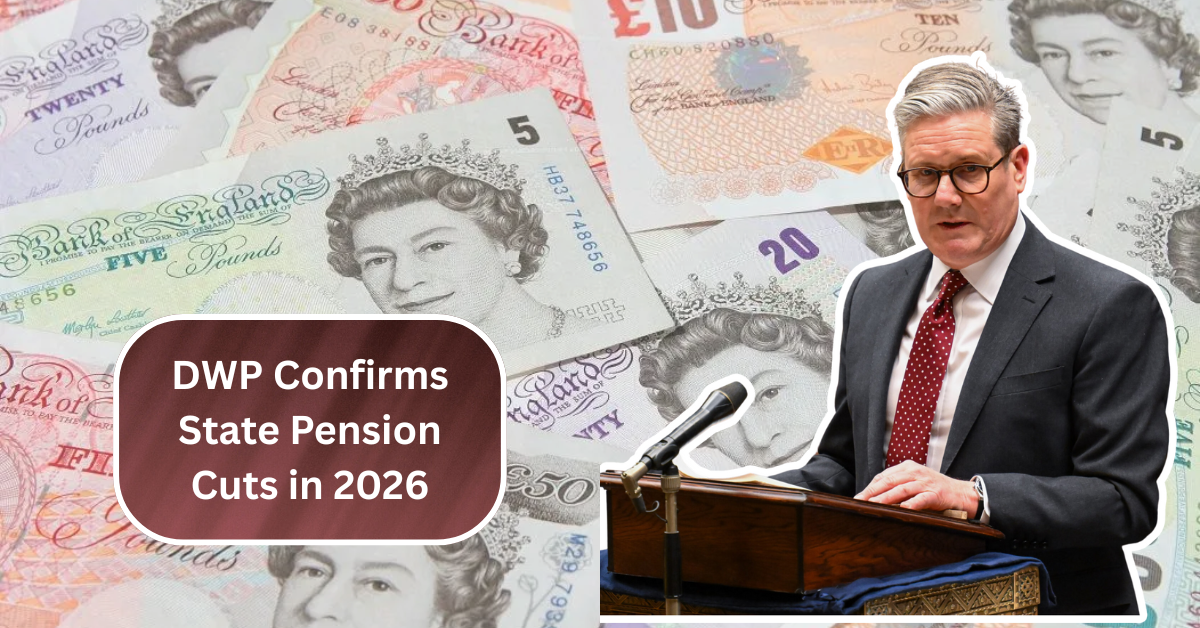The Department for Work and Pensions (DWP) has announced some important changes that are likely to take effect from 2026. These changes could impact the way state pensions are calculated and distributed to retirees in the UK. While the full picture is still unfolding, early details suggest that some pensioners may see a reduction in their payments.
Let’s break this down in simple terms so you know what’s coming, who could be affected, and what you can do about it.
What Is the DWP Planning for 2026?
This Article Includes
According to recent updates, the DWP is planning to adjust the eligibility criteria and review how much people receive under the state pension system. This move is part of a larger effort to manage rising pension costs and ensure the system remains sustainable for future generations.
The main areas of focus include:
- Reviewing eligibility conditions
- Potentially increasing the retirement age
- Adjusting payment calculations
Although these plans are still under review, some groups might get less than they currently expect once these new rules are applied.
Why Is This Change Happening?
The UK government is facing long-term financial pressure due to an ageing population and increasing life expectancy. Simply put, more people are retiring, and they are living longer, which means the government has to pay pensions for more years than before.
To balance the books and avoid future deficits, the DWP is exploring ways to either slow down the growth of pension payments or make the system more targeted.
Who Could Be Affected the Most?
While full details will be shared closer to 2026, here are the groups that may be affected most:
- People turning retirement age after 2026
If you’re due to reach retirement age after 2026, your pension calculation might be based on new criteria. - Those with incomplete National Insurance contributions
If you haven’t paid enough into the system, your pension could be reduced or delayed under the updated rules. - Younger retirees in their early 60s
If the pension age is increased, people planning to retire early may have to wait longer to claim their benefits. - People relying fully on the basic state pension
Those without other income sources could feel the impact more deeply.
What Are Experts Saying?
Some experts have welcomed the government’s decision to review the system, calling it necessary to keep the pension scheme financially viable. However, many others are worried that these changes could unfairly affect those who have already planned their retirement around current rules.
There are also concerns that not enough is being done to protect the most vulnerable groups—especially those without workplace pensions or personal savings.
What Can You Do About It?
Even though the changes are still a couple of years away, here are a few smart steps you can take now:
- Check your National Insurance record
Visit the UK government website to ensure your contributions are up-to-date. You need at least 10 qualifying years to get any state pension and 35 years for the full amount. - Start reviewing your retirement plans
If you’re retiring after 2026, be flexible with your retirement age or monthly income expectations. - Look into private pensions or savings
Relying only on the state pension might not be enough going forward. Explore options like workplace pensions, private savings, or investment plans. - Stay informed
As 2026 approaches, follow official updates from DWP so you’re not caught off guard. - Consider speaking to a financial adviser
A professional can help you understand how the changes could impact you personally and help you prepare.
What’s Next?
The government is expected to hold consultations and may announce detailed guidelines in the coming months. Public reaction and expert feedback will also play a role in shaping the final version of the changes.
Until then, the best approach is to stay alert, keep your records updated, and begin planning for the possibility of smaller pension payments.
Final Thoughts
The DWP’s announcement is a reminder that retirement planning is not a one-time task—it’s something you need to review regularly. These 2026 pension changes may not affect everyone the same way, but they are still a big deal, especially for those nearing retirement.






